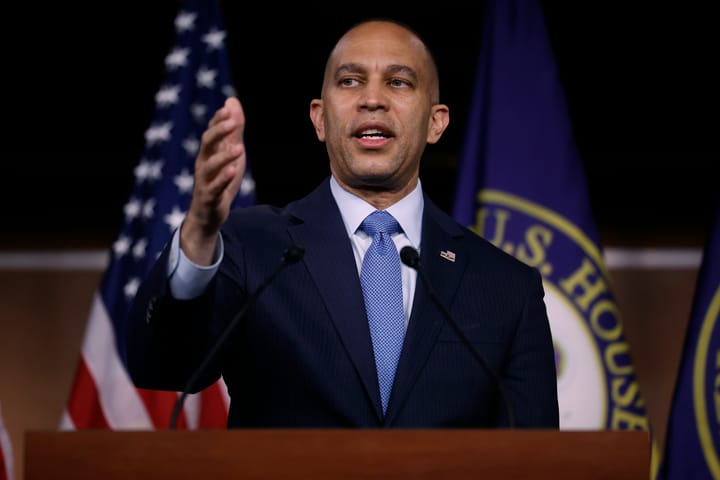The U.S. House of Representatives is currently voting on the National Defense Authorization Act (NDAA) for fiscal year 2022, the gigantic annual bill that authorizes funding for the Pentagon budget and weaponry that becomes rich revenue for defense contractors.
The House Armed Services Committee, which takes the lead in preparing the NDAA, reports that the total authorized by H.R. 4350 is $768 billion in discretionary spending for national defense, including $740 billion for the baseline Department of Defense budget and $28 billion in Department of Energy programs.
This amount is an increase from the Biden administration’s initial proposal in April of $753 billion, which even before being raised continued the long trend of increased defense spending.
Committees in the House and Senate took action in August to boost the approved spending by a whopping $25 billion above what the administration requested, which leads to a total of $778 billion authorized in discretionary defense spending next year, when accounting for national defense authorizations that are not associated with the NDAA. This amount of military spending eats up about half of all federal discretionary spending—and over half of that has been given to the private sector from FY 2001 – FY 2020, according to calculations by defense analyst Stephen Semler.
In recent years, U.S. military spending has surpassed that of the next 10 countries combined—with a steadily-rising Pentagon budget driven, over the past two decades, by over $2.5 billion in federal lobbying by defense companies, in addition to campaign contributions and the revolving door with the government. The above Pentagon budget figures don’t include defense-related mandatory spending, the Department of Veterans Affairs or Homeland Security, and other areas of national security spending, which together total over $1.2 trillion annually according to watchdog groups.
Several progressive House Democrats have introduced legislation that would halt the trend of ever-increasing military spending. Rep. Barbara Lee (D-Calif.) is proposing to cut about $24 billion in an amendment that would bring the authorization back to the level the president requested, and Rep. Mark Pocan (D-Wisc.) has reintroduced an amendment for a 10% reduction across the board, excluding salaries and healthcare. Last summer, a 10% cut proposal was defeated in the House by a vote of 324-93, with 139 Democrats voting against it to 92 in favor.
Other House Dems introduced reform measures to the annual defense bill, each of which was joined by several other reps:
- Rep. Ro Khanna (D-Calif.) introduced an amendment to end U.S. involvement in the war in Yemen led by Saudi Arabia, also introduced in the previous Congress as a bipartisan and bicameral measure.—update from @WinWithoutWar: passed, 219-207
- Rep. John Garamendi (D-Calif.) introduced an amendment that would pause development of the Ground Based Strategic Deterrent (GBSD) nuclear weapon program.—update: not adopted, 118-299
- Rep. Jamaal Bowman (D-N.Y.) introduced an amendment to end the military presence in Syria. Advocacy group Win Without War has called on members of Congress to repeal the 2001 Authorization for Use of Military Force (AUMF).—update: not adopted, 181-246
- Rep. Hank Johnson (D-Ga.) introduced an amendment to roll back the Pentagon’s 1033 program that sends combat gear to local police departments.—update: not adopted, 198-231
We recently uncovered nearly four dozen members of Congress who hold up to $6.7 million worth of stock in military contractors, as lawmakers send about half the discretionary budget to the Pentagon in spending that produces less than half as many jobs as investments in health care or public education, according to economist Heidi Garrett-Peltier in a 2019 report, “War Spending and Lost Opportunities.”
Only 23 representatives signed a May letter calling on Biden to reinvest savings from the war in Afghanistan, Semler wrote last week, so House Democrats seeking to trim military spending may not currently have the two dozen votes they’d need above last year’s total to claim a majority in their caucus, much less the the full chamber. The 14 Democrats on the House Armed Services Committee who joined with Republicans on Sept. 1 in approving a $24 billion “plus-up” to the defense authorization have taken over $1.3 million in campaign contributions from military contractors in the 2020 and 2022 election cycles.
Since the start of the war in Afghanistan, the Pentagon has spent over $14 trillion, according to the Costs of War project. “Over 929,000 people have died in the post-9/11 wars due to direct war violence, and several times as many due to the reverberating effects of war,” the team of 50 scholars has found in their work since 2010.
Originally posted at The Brick House Cooperative.



